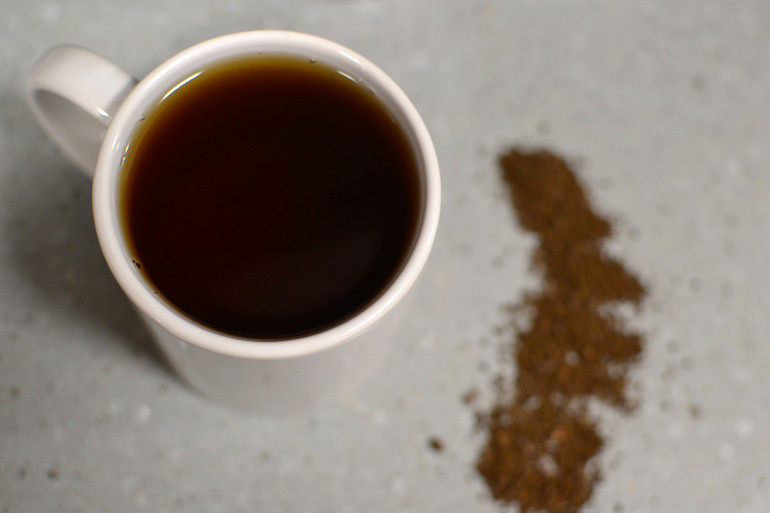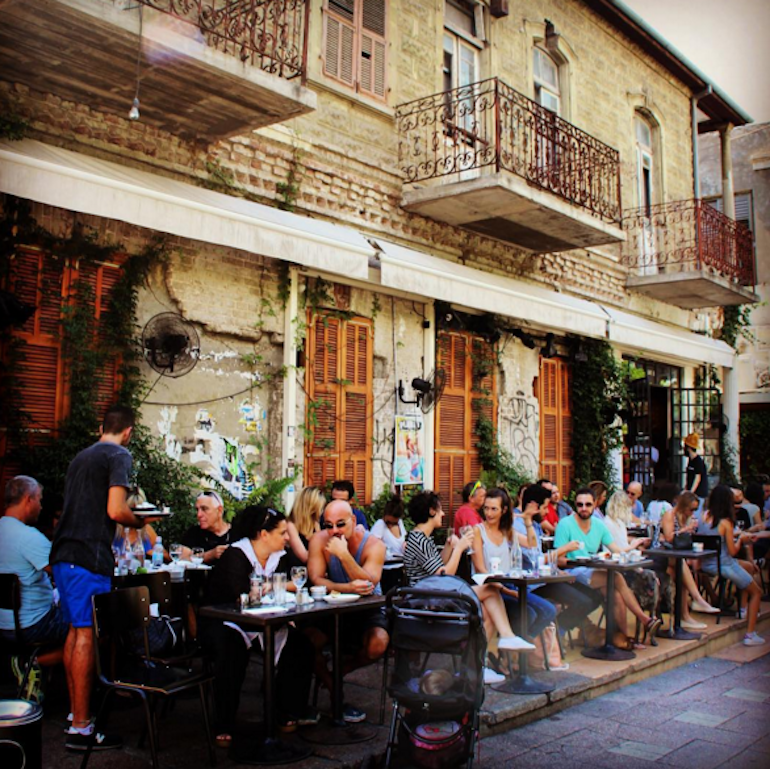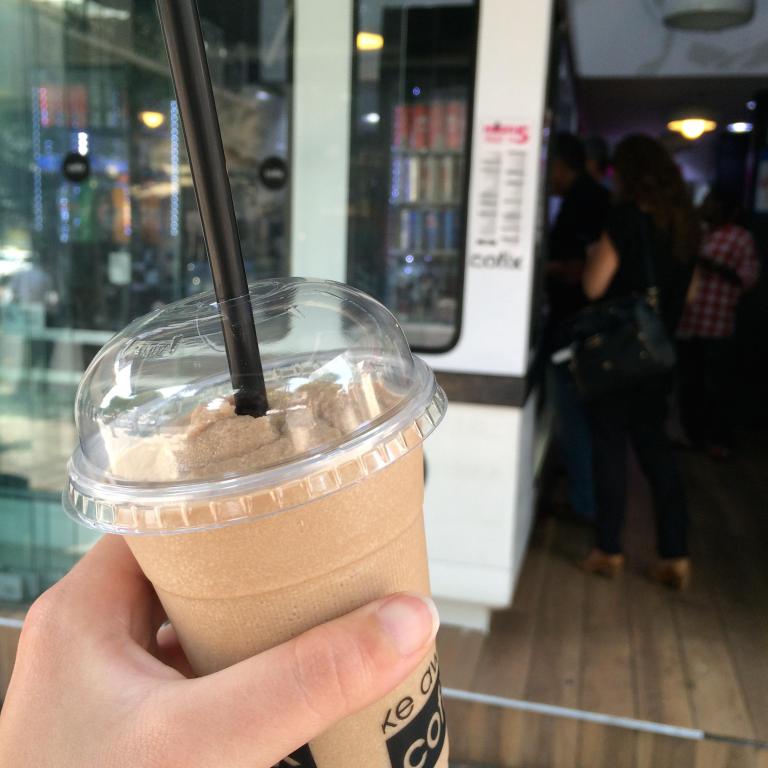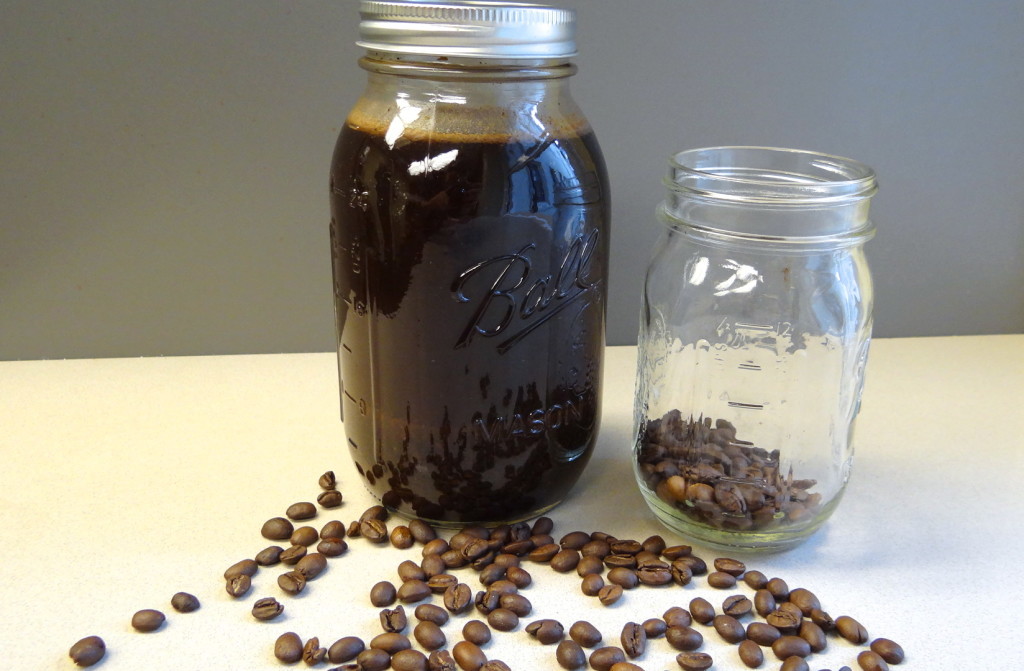While I may consider myself a snob of many other things (including apples and smoothies), I don’t even pretend to know what I’m talking about when it comes to coffee. Give me a white chocolate mocha or a frappuccino and I’m ready to go. The regular stuff is far too bitter for me, though I sense it’s an acquired taste that I’ll gain in the future.
College students are pretty much wired to have coffee addictions. Late nights, early mornings and endless study sessions leave our bodies begging for a dose of caffeine to the bloodstream. But growing up, neither of my parents drank coffee (or even tea), so I was never really introduced to that lifestyle.

Photo by Jennifer Cao
I spent this past summer interning for a culinary food tour company in Tel Aviv, where the weather is always sunny and hot—the perfect city for dining al fresco. You can walk down any street and find numerous cafes dotting the sidewalk, some chains like Aroma (bae) or Arcaffe, and others that are family-owned and run.
I’m telling you, it’s a wonder that anyone ever gets any work done in this city, because the cafes are always full and people linger at tables in the shade for hours.

Photo courtesy of @globetrottergirls on Instagram
Just because it’s hot outside doesn’t mean people don’t drink hot beverages. I still can’t quite wrap my head around it, but you’ll see many cafe-goers with cappuccinos and pastries or beautiful latte art in the foam of their 140° drinks in the 90° weather.
Then we run in to the peculiar phenomenon that is Israeli iced coffee. It’s something that every American runs into when they come to Israel. You find a nice café, you order an iced coffee and you make small talk at the table. You’re expecting a coffee over ice, but what you get when the waiter comes back is essentially a coffee slushy.
Iced Coffee

Photo by Becca Berland
In Israel, an iced coffee is literally an iced coffee. They’re available at almost every café or kiosk and they’re super refreshing in the Tel Aviv heat. Think of it as the Israel version of a frappuccino—they even come in fun flavors like hazelnut, cookies and cream and Kinder.
What’s great about iced coffee in Israel is that it’s not too sweet. You know that weird coating on your teeth after you drink a frap? Yeah, that doesn’t happen in Israel. Plus, the drink is already made and in one of those slushy machines, so you don’t have to wait for someone to blend your drink—all they have to do is pour it.
Cold Coffee

Photo by Lara Schwieger
A cold coffee, on the other hand, is what you thought you were ordering when you asked for an iced coffee. It’s coffee over ice. Coffee on the rocks. Coffee that is cold. Cold coffee. This kind of brew is often accompanied by a small cup of sugar water to use as a sweetener. I always thought the sugar water thing was weird, but I was told that it’s not unusual in the US. I need to work on my coffee knowledge.
When you think about it, it actually makes sense. Iced coffee is coffee blended with ice. Cold coffee is coffee that’s cold. They’re both a great way to cool off when it’s hot, but it’s a good idea to know what you’re ordering so you’re not surprised when you end up with coffee slush when all you wanted was a cold-brewed cuppa joe.


